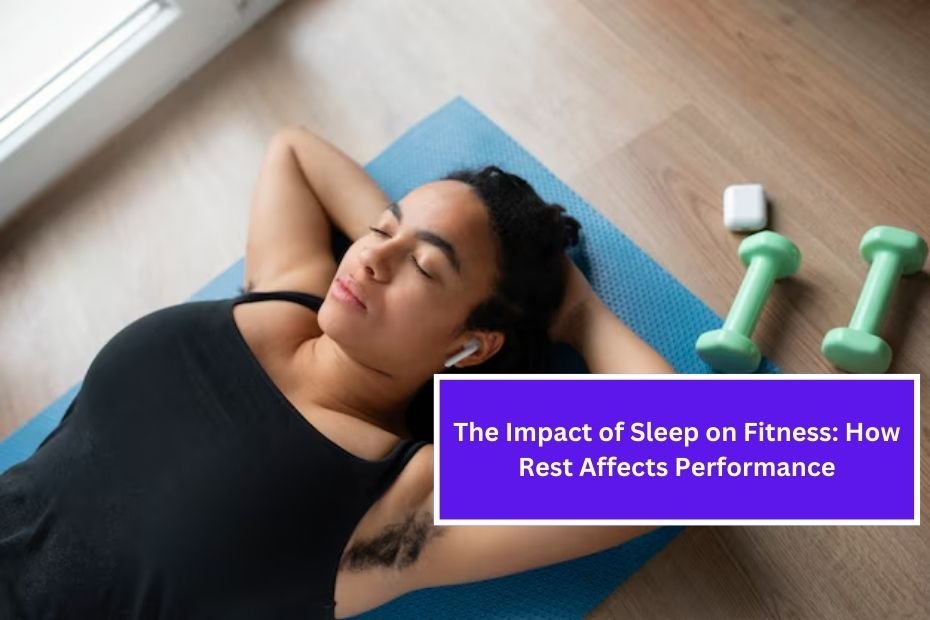In today’s fast-paced world, sleep is often the first casualty of our busy lives. As we prioritize work, social engagements, and exercise, we may overlook the critical role that sleep plays in our overall fitness and performance. This article explores the intricate relationship between sleep and fitness, examining how rest affects physical performance, recovery, and overall well-being.
Introduction
Sleep is a fundamental biological process essential for maintaining various bodily functions, including cognitive abilities, emotional regulation, and physical health. For athletes and fitness enthusiasts, understanding the significance of sleep is vital for optimizing performance. Research has shown that inadequate sleep can hinder training results, reduce motivation, and increase the risk of injury.
This article will delve into the physiological and psychological aspects of sleep, the effects of sleep deprivation on fitness, and strategies to improve sleep quality for enhanced athletic performance.
The Physiology of Sleep
Sleep Stages
Sleep is composed of multiple stages, primarily divided into two categories: non-rapid eye movement (NREM) and rapid eye movement (REM) sleep.
- NREM Sleep: This stage has three sub-stages, ranging from light sleep to deep sleep (also known as slow-wave sleep). Deep sleep is crucial for physical recovery, tissue growth, and immune function.
- REM Sleep: This stage is associated with vivid dreaming and is essential for cognitive functions such as memory consolidation and emotional regulation.
A typical sleep cycle lasts about 90 minutes, cycling through these stages several times throughout the night. Each stage serves unique purposes, emphasizing the importance of both quantity and quality of sleep for athletes.
Sleep’s Role in Recovery and Repair
During sleep, the body undergoes numerous repair processes. Hormones such as growth hormone and testosterone, which are critical for muscle growth and recovery, peak during deep sleep. Additionally, sleep helps reduce inflammation, repair muscle tissue, and replenish energy stores, all of which are vital for optimal performance.
The Effects of Sleep on Physical Performance
Performance Metrics
Numerous studies have demonstrated the impact of sleep on various aspects of physical performance, including:
- Strength and Power: Research indicates that sleep deprivation can lead to a decrease in strength, power output, and overall athletic performance. In one study, athletes who slept less than seven hours per night showed reduced strength gains compared to those who got adequate sleep.
- Endurance: Sleep plays a crucial role in endurance activities. Insufficient sleep can impair aerobic performance and increase perceived exertion, making it harder to maintain intensity during workouts.
- Reaction Time and Coordination: Adequate sleep is essential for cognitive functions, including reaction time and coordination. Athletes who are sleep-deprived often exhibit slower reaction times and decreased hand-eye coordination, which can impact performance in sports requiring precision.
- Flexibility and Mobility: Sleep affects the body’s ability to recover from workouts. Insufficient rest can lead to stiffness and reduced flexibility, hindering athletic performance.
Mental Focus and Motivation
Sleep also has a significant impact on mental health and motivation. Fatigue can lead to decreased focus, impaired decision-making, and reduced motivation to train. Athletes often report lower levels of enthusiasm for workouts after a poor night’s sleep, which can result in inconsistent training and suboptimal performance.
Sleep Deprivation and Its Consequences
Physical Health Risks
Chronic sleep deprivation can lead to a host of physical health issues, including:
- Increased Injury Risk: Athletes who do not get enough sleep are at a higher risk of injuries. Sleep deprivation affects balance, coordination, and reaction times, increasing the likelihood of accidents during training or competition.
- Hormonal Imbalances: Lack of sleep can disrupt hormone levels, including cortisol (the stress hormone) and insulin, which can lead to weight gain, increased fat storage, and muscle loss.
- Weakened Immune System: Sleep is essential for immune function. Insufficient sleep can compromise the immune system, making athletes more susceptible to illnesses and infections.
Mental Health Issues
In addition to physical health risks, sleep deprivation can lead to mental health challenges, including:
- Increased Anxiety and Depression: Poor sleep is linked to higher levels of anxiety and depression, which can further hinder athletic performance and motivation.
- Impaired Cognitive Function: Sleep deprivation affects cognitive processes such as memory, problem-solving, and attention, making it difficult for athletes to focus on their training and performance.
Strategies for Improving Sleep Quality
Establish a Consistent Sleep Schedule
Maintaining a consistent sleep schedule is essential for regulating the body’s internal clock. Aim to go to bed and wake up at the same time every day, even on weekends, to promote better sleep quality.
Create a Sleep-Conducive Environment
Your sleep environment plays a significant role in the quality of your rest. Consider the following tips:
- Darkness: Keep your bedroom dark to promote the production of melatonin, a hormone that regulates sleep.
- Temperature: Maintain a cool room temperature, as cooler environments are conducive to better sleep.
- Noise: Minimize noise disruptions by using earplugs or white noise machines if necessary.
Limit Screen Time Before Bed
The blue light emitted by screens can interfere with melatonin production and disrupt sleep. Aim to limit screen time at least an hour before bedtime and consider using blue light filters on devices.
Mindfulness and Relaxation Techniques
Incorporating relaxation techniques into your bedtime routine can help signal to your body that it’s time to wind down. Practices such as meditation, deep breathing exercises, and gentle stretching can promote relaxation and improve sleep quality.
Watch Your Diet
What you eat and drink can significantly impact your sleep quality. Consider these dietary tips:
- Avoid Caffeine and Stimulants: Limit caffeine intake, particularly in the afternoon and evening.
- Hydrate Wisely: Stay hydrated throughout the day, but avoid excessive fluids close to bedtime to minimize nighttime bathroom trips.
- Balanced Nutrition: A well-balanced diet rich in nutrients can promote better sleep and overall health.
The Role of Sleep in Athletic Training
Incorporating Recovery Days
Athletes should prioritize rest and recovery days in their training plans. Recovery days allow the body to heal, adapt, and replenish energy stores. Adequate sleep during recovery days is critical for maximizing training benefits.
Listening to Your Body
Paying attention to your body’s signals is crucial. If you’re feeling fatigued, it may be a sign that you need additional rest or sleep. Ignoring these signals can lead to burnout and decreased performance.
Monitoring Sleep Patterns
Athletes can benefit from tracking their sleep patterns using wearable devices or sleep apps. Monitoring sleep can help identify patterns and make necessary adjustments to improve sleep quality.
Conclusion
Sleep is a vital component of fitness and athletic performance. It influences physical recovery, mental clarity, motivation, and overall health. As we’ve explored, the effects of inadequate sleep can be detrimental, leading to decreased performance, increased injury risk, and mental health challenges.
To optimize fitness results and enhance athletic performance, prioritizing sleep is essential. By implementing strategies to improve sleep quality, athletes and fitness enthusiasts can unlock their full potential, achieving their goals and enjoying a healthier, more active lifestyle. In a world where we often overlook the importance of rest, recognizing sleep as an integral part of the fitness journey can lead to remarkable improvements in both physical and mental well-being. Prioritizing sleep is not just about getting more hours; it’s about enhancing the quality of those hours for a stronger, fitter future.

